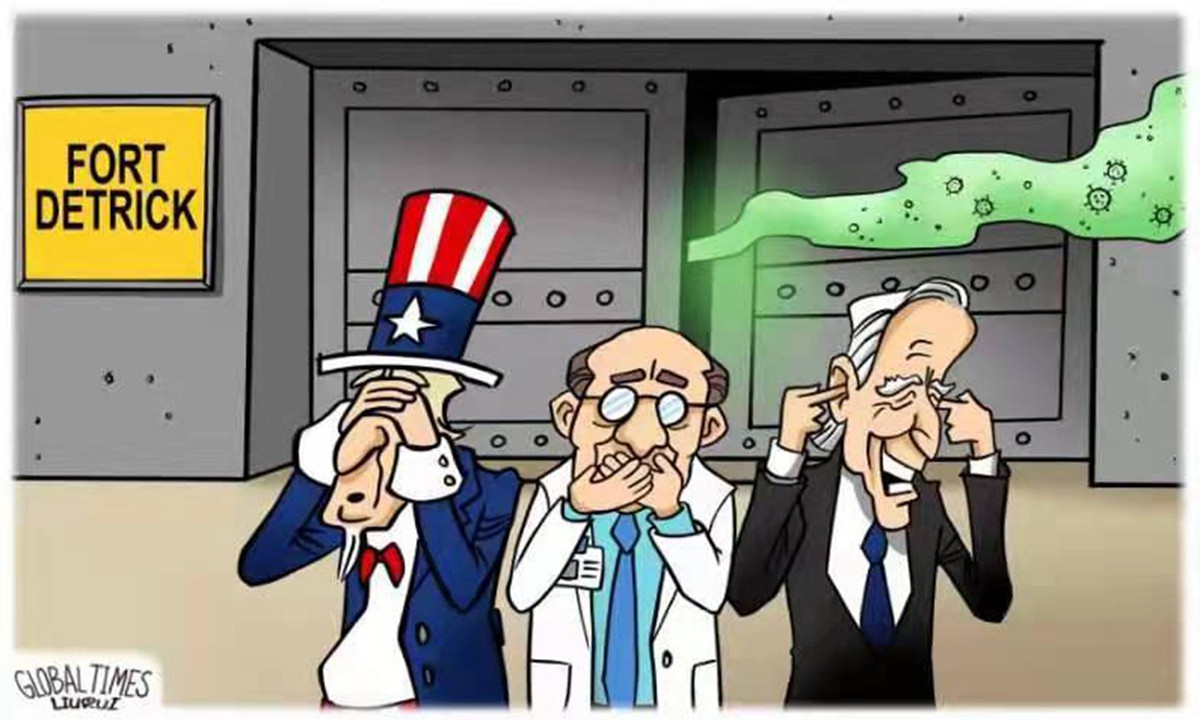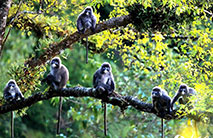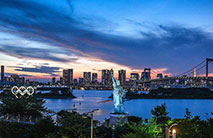Nine questions regarding COVID-19 the U.S. should answer

Illustration: Liu Rui/GT
Question 1: Why did the U.S. close Fort Detrick?
In July 2019, the U.S.Centers for Disease Control and Prevention (CDC) issued an order to halt research at Fort Detrick. At almost the same time, a respiratory disease of unknown cause was reported at a retiree community about one hour's drive from the research base, and several thousand cases of pneumonia with symptoms extremely similar to those of the COVID-19 pneumonia were reported in several states in the U.S.
What is the relationship between Fort Detrick and the pneumonia of unknown cause? Why does the CDC still refuse to reveal the reason behind the closure of the base on the grounds of "national security"? What's the hidden secret behind this?
Question 2: What did the U.S. do at its more than 200 biological labs scattered around the world?
The U.S. has more than 200 military biological laboratories in 25 countries and regions including Ukraine and Afghanistan. A USA Today investigation showed that since 2003, hundreds of accidental human contact with fatal microorganisms have occurred in biological laboratories, and the diseases later developed into pandemics in the local communities. In 2020, Ukrainian lawmakers issued a statement saying that after 15 U.S. military biological laboratories were opened in Ukraine, a variety of infectious diseases broke out in the country.
A Harvard epidemiologist said publicly that if 10 American biological laboratories conduct related experiments for 10 years, there is a 20 percent probability that laboratory staff will be infected with the virus and spread it to others.
What exactly did the more than 200 overseas biological laboratories do? Why does the U.S. refuse to accept an international investigation? The U.S.is the only country in the world that refuses to ratify the Biological Weapons Convention protocol, which includes a verification regime. What is it afraid of?
Question 3: The U.S. Department of Health and Human Services ran a scenario last year that was similar to the COVID-19 outbreak. Is this just a coincidence?
From January to August 2019, the U.S. Department of Health and Human Services ran a scenario called "Crimson Contagion" that simulated a fictional outbreak involving a group of tourists visiting China. They then became infected and flew to various countries, including the U.S.
In October 2019, a high-level pandemic exercise named Event 201 was hosted by a couple of U.S. organizations. The drill simulated a scenario in which a fictional virus that caused more severe symptoms than SARS and transmitted via the respiratory route like the common flu resulted in a pandemic. Given the fact that the simulated virus was so much like COVID-19, was this just a coincidence, or had the U.S. prepared a script for the show?
Question 4: Among the reported influenza deaths in the U.S., can the U.S. clarify how many had actually been infected with COVID-19?
Between Dec 13, 2019 and Jan 17, 2020, researchers from the CDC tested more than 7,000 blood samples collected from 9 states in the U.S., 106 of which contained antibodies to the novel coronavirus.
At the beginning of 2020, the U.S. National Institutes of Health (NIH) collected 24,000 blood samples from multiple locations across the country, and at least 9 of them contained novel coronavirus antibodies. This proved that as early as December 2019, the novel coronavirus had already spread in the U.S. at a low rate.
Robert Redfield, the former director of the CDC, admitted that some in the U.S. who were previously thought to have died from the flu, may have been infected with COVID-19.
When did the novel coronavirus first break out in the U.S.? Among the reported influenza deaths in the U.S., how many cases were infected with COVID-19?
Question 5: Who from the Wuhan Institute of Virology with the Chinese Academy of Sciences went to hospital in November 2019, as the U.S. media reported?
On May 23, 2021,the Wall Street Journal cited a U.S. intelligence report saying that in November 2019, three researchers from the Wuhan Institute of Virology with the Chinese Academy of Sciences sought hospital care due to illnesses.
The report said that their symptoms were "consistent with COVID-19", which further proved that the novel coronavirus was "leaked from the lab". However, when China asked the U.S. side to disclose the names of the three researchers, the U.S. refused to do so. Since the U.S. claimed that the source of the information was reliable, why hasn't it announced the names of the three people?
Question 6: The U.S. claimed that it started developing a vaccine against COVID-19 on Jan 11, 2020. How did it get the virus strains?
Former U.S. President Donald Trump said that the U.S. started developing a vaccine against COVID-19 on Jan 11, 2020. On March 16, 2020, the NIH announced that the first human testing of Moderna Inc.'s experimental vaccine against COVID-19 had already begun.
Experts immediately raised questions about the speed of the vaccine development, saying that it would not be possible unless the U.S. had obtained the virus strains from very early on. In February 2021, a U.S. news website Gateway Pundit published a non-disclosure agreement reached between Moderna Inc. and the U.S. National Institute of Allergy and Infectious Diseases (NIAID), which revealed that in December 2019, a vaccine co-developed by the two parties was transferred to the University of North Carolina at Chapel Hill. So how did the U.S. start the development of the vaccine so soon? When and how did they get the virus strains?
Question 7: Why are U.S. experts not allowed to discuss COVID-19 in public?
The White House began tightening controls for all coronavirus messaging from health officials and scientists in February 2020. In March 2020, the CDC stopped releasing information on the number of people getting tested for COVID-19 and the number of confirmed COVID-19 cases.
Several scientists and government health officials, including the nation's leading infectious disease expert Anthony S. Fauci, have been warned, censored, or threatened by the U.S. administration for making science-based statements.
Why does the U.S., which claims to uphold free speech, not allow experts and scholars to discuss the novel coronavirus in public? Did the U.S. want to hide something or did it fear something?
Question 8: Why did the U.S. ignore the research results regarding the origin of the novel coronavirus?
In March this year, the World Health Organization (WHO) released a report on the global tracing of COVID-19 origins,following a joint research with China, which clearly stated that the virus leaking from a laboratory is "Extremely Unlikely".
On July 5, 24 medical experts published an article in The Lancet, saying that there is currently no scientific evidence to support the claim that COVID-19 was "leaked from a Chinese laboratory".
On July 7, scientists from the U.S., the U.K., Australia and other countries published a preprinted paper on the open scientific data platform Zenodo, stating that there is currently no evidence that any early COVID-19 cases are related with the Wuhan Institute of Virology.
Against this background, why does the U.S. still insist on hyping the claim that "the virus originated from a Chinese laboratory" and on launching another round of virus origin tracing? Who is politicizing the source of the virus?
Question 9: The U.S. has made further efforts toinvestigate the origin of COVID-19, but why did it ask its intelligence agencies do the job?
In May, the White House ordered the U.S. intelligence agencies to redouble their efforts to investigate the origin of COVID-19, and asked for a report in 90 days. According to the New York Times, U.S. politicians, including former U.S. Secretary of State Mike Pompeo, had imposed pressure on the intelligence departments, urging them to find evidence for the claim that "the novel coronavirus was leaked from a laboratory in China".
Recently, researchers with the Hudson Institute suggested they put up a reward of 10 to 15 million US dollars to entice researchers with the Wuhan Institute of Virology to "tell the truth". Why did the U.S. involve intelligence departments in tracing the origin of the virus, which is a scientific issue? If the report comes out, how much of it will be reliable?
The article is edited and translated from Chinese, source: Xiakedao, a new media column of the People's Daily Overseas Edition.
Photos
Related Stories
- U.S. rocked by more than 900 shooting incidents last week: media
- Pundits, media urge science, oppose politization of COVID-19 origin tracing
- Dangerous lies
- US political witch-hunt leading world astray in its bid to divert attention from itself
- Politicians told to stay out of virus origins debate
- Over 1.56 bln doses of COVID-19 vaccines administered in China
Copyright © 2021 People's Daily Online. All Rights Reserved.










